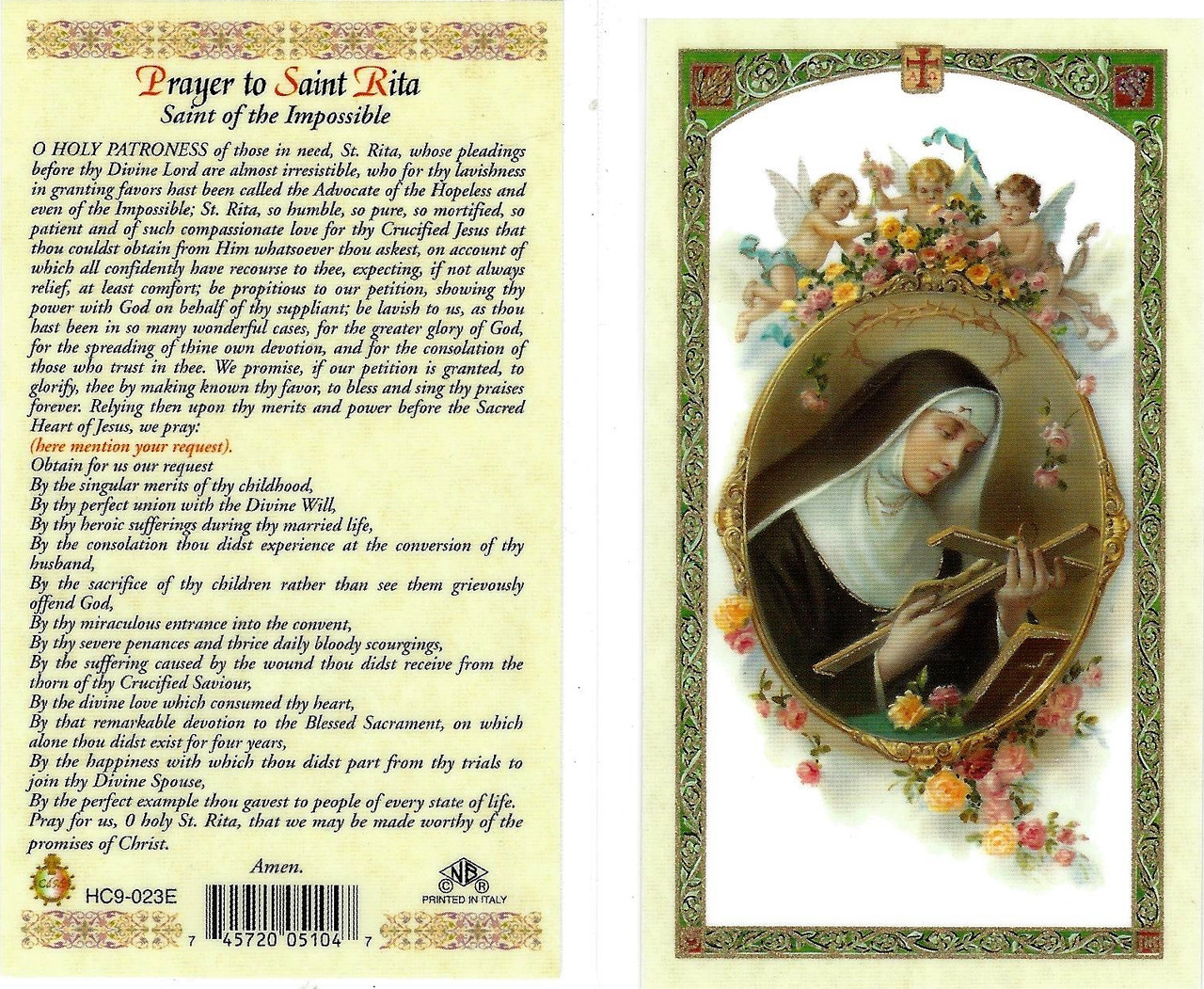

The way was now clear for our Saint to satisfy her long yearning for a conventual life.


The mother's prayer was heard, and the two youths shortly afterwards died edifying deaths, forgiving their father's slayers and resigned to God. Meantime, poor Rita was in despair, and finding her expostulations useless to prevent further effusion of blood, she had recourse to prayer, earnestly beseeching God to take her boys from this world rather than permit them to live on stained by homicide. Such a death in the Italy of the Decamerone and the Republics, and, indeed, till well into our own time, usually meant a prolonged vendetta, and, of course, the two sons of the dead man at once took up the quarrel. Acerbities of temper, temperamental differences, and all the other difficulties arising out of the necessary variations of human nature, are, under God's influence, toned down and adjusted, provided always Holy Mass, prayer and the sacraments are not forgotten-for "wheresoever two or three are gathered together in my name, there am I in the midst of them." So Rita tamed her rough spouse, and for two-and-twenty years lived harmoniously (concorditer) with a husband who, like most quarrelsome individuals in the days when sword and stiletto ever sharp, hung from every Italian gentleman's belt, perished in a feud. We are not aware of the circumstances that led her parents to oppose this apparently obvious course, but oppose it they did, and Rita submitted, even so far as to please them by marrying a man whom all accounts describe as exceedingly bad-tempered and something worse! It is the teaching of the Church that the grace of the Holy Sacrament of Matrimony, if corresponded with by a good life, works miracles, almost, in the way of establishing and perpetuating conjugal happiness. This being so, it is not surprising to learn that Rita, as she neared womanhood, felt that her vocation lay in the convent rather than in that of domestic life. The father and mother of Rita were themselves very pious, and from their laudable habit of composing the quarrels and differences among their neighbours, they were known as the "Peacemakers of Jesus Christ." Little Rita as she grew up, seems to have acquired a great deal of this spirit of the supernatural, for she showed little if any inclination for games, seeking her recreation chiefly in prayer and visits to sacred shrines-an exercise, by the way, which-granted the proper disposition-brings with it a wealth of real enjoyment and satisfaction quite wanting to other arid more secular amusements.

Rita belongs to that wonderful band of elect who were holy from their cradles, it must be said that she required every available help that sanctity gives, to have enabled her to endure the trials and difficulties with which most of her life was filled! She was the daughter of parents, both nearing middle age at the time of her birth, and the author of the Latin memoir of the Saint says that shortly after this event (1386), a swarm of bees was seen to come and go several times to and from the cradle a portent which was taken as indicating that the career of the child was to be marked by industry, virtue and devotion.


 0 kommentar(er)
0 kommentar(er)
